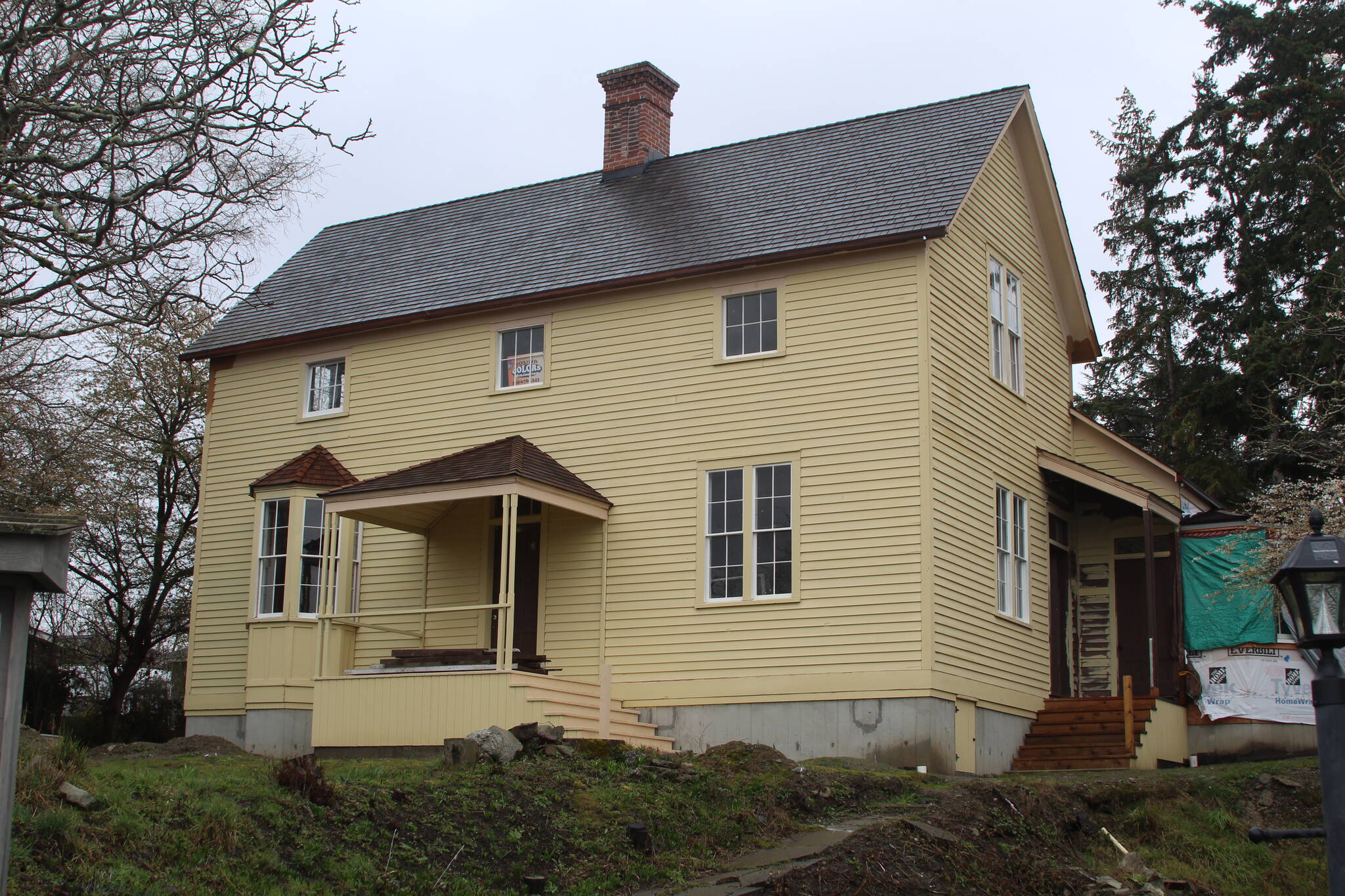A beloved downtown Coupeville property was recently granted national recognition for its historical significance.
The Col. Granville and Henrietta Haller House, located at 1 Front Street, was listed last month on the National Register of Historic Places. The house is owned by Historic Whidbey, a nonprofit organization founded 10 years ago to purchase and rehabilitate the building.
Historic Whidbey Executive Director Lynn Hyde said the nonprofit has been working toward this listing for over a year. The process involved a great deal of research to prove the house met the register’s criteria for historical significance, Hyde said.
The Haller House has roots dating back to the early settlement of Washington State. The building’s eponymous owner, Col. Granville Haller, was a key player in the American Civil War and the “Indian Wars” that took place in the Cascade region during the early years of white European settlement in the area.
Hyde said she also learned a great deal about the house itself during the research process. The earliest existing section of the house was part of the town’s first commercial maritime operation. When it was built by Rafael Brunn — the same man who built Coupeville’s first mercantile store, wharf and warehouse — only two other houses were standing in the area.
The Haller House joins a number of other structures on Whidbey included on the register. Hyde said besides the Haller House, there are only two other stand-alone buildings on Whidbey Island listed — the Olympic Club in Langley and the Loers House just south of Oak Harbor. There are also six registry buildings located in Deception Pass State Park and another 180 properties, including around 400 individual structures, in the Central Whidbey Island Historic District.
Inclusion on the register makes a building eligible for certain federal grants and tax credits and provides formal recognition of a property’s historic value, which can create a focal point for local heritage and tourism and education.
Historic Whidbey has been working on renovations to the house since the organization took ownership of it in 2018. Since the purchase, the nonprofit has completed the major milestones of replacing the roof and the foundation. Last year, volunteers rebuilt the west end conservatory and primed the house for a new coat of paint.
Upcoming projects include painting the exterior and installing sewer and plumbing lines. A lot of work remains to be done on the interior of the house, but the money the nonprofit received from a state grant has been nearly expended, Hyde said. Historic Whidbey will have to conduct another capital campaign before completing the project.
Hyde estimated remaining costs to be around a quarter million dollars. Landscaping will be a significant expense, she said.
Hyde said the organization’s goal is to have the rehabilitation project completed by 2026, in time for the commemoration of the 250th anniversary of the Declaration of Independence being signed. When completed, the Haller House will contain both historical interpretive spaces and a mercantile shop and soda fountain, as well as offices on the top floor.
In celebration of its 10th birthday this year, Historic Whidbey will host a reception for donors June 4 to thank those who have contributed to the project. This will be the nonprofit’s first donor event since 2018.



